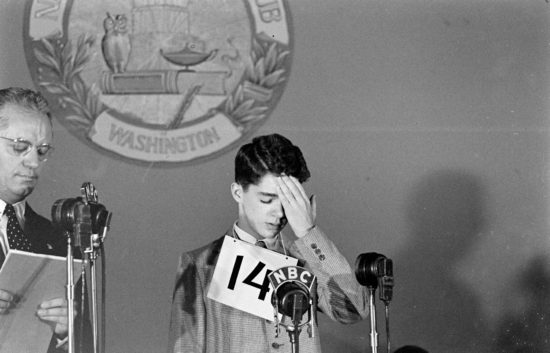
It’s only four letters, and not likely to make any sixth grader slap his forehead in frustration. But not all spelling challenges involve bees, Scrabble games, or even letters. Musicians are said to spell chords when they analyze them into their constituent tones, for example. Someone seeking the details of how something happened may ask to have it spelled out for her. In this sense, to spell anything is just to enumerate its parts.
In the wine world, a lot of what we might call spelling happens. To the point where, if you’re a retailer or sommelier, it can feel as though your professional life is one unending spelling bee, with vintages, grape varieties, estates, vineyard sites and fermentation vessels standing in for vowels, consonants, syllables and diphthongs. String them together in due order and you get to advance to the next round. Competitive wine tastings, such as the annual Oxford-Cambridge challenge or those held to determine who will be admitted to membership in the Court of Master Sommeliers are two of the industry’s most prestigious spelling bees. They’re taken very seriously indeed.
The time and effort strivers put into training to be great spellers — whether of words or wines — can seem a trifle . . . well . . . trifling. How many spelling bee champions become poets, novelists or screenwriters of renown? Precious few, is my guess. This can only be because while spelling of every sort has great practical value, in the end it’s just a tool to be picked up in the pursuit of something greater. In the case of words, greater purposes seem clear – in the case of wine, these are less obvious.
But there’s a common element, I think. In both cases, an enumeration of parts – no matter how correct or detailed — is insufficient. Lists don’t generally open doors to new understanding or offer fresh insights.
But marvelous things happen when a set of discrete, learned skills are deployed in the kind of insightful, fleshed-out narrative that truly illuminates a subject. The kind of wine writing (and talking) I most appreciate is the sort that goes beyond impeccable, orthographic spelling and achieves something genuinely meaningful – and occasionally surprising.
You may well ask how to know when you’ve had such an experience. Must I spell it out for you?
-Stephen Meuse
Taste, talk and learn about wine this week in the FKC wine corner . . .
THURSDAY, APRIL 25 3-6 PM – BEYOND PLAN BEE
2018 Fatalone IGT Puglia “Teres” Rosato, $21.95
2017 Maison Guillot-Broux, Macon-Villages,” $24.95
2018 Les Vignerons d’Estezargues Domaine des Bacchantes (new vintage), $17.95
FRIDAY, APRIL 26 3-6 PM – USED IN A SENTENC
2018 Domaine Les Aphillantes Côtes du Rhone Rosé,” $17.95
2018 Domaine Céline & Frédéric Gueguen, Chablis, $21.95
2015 Château Unang, Ventoux, $19.95